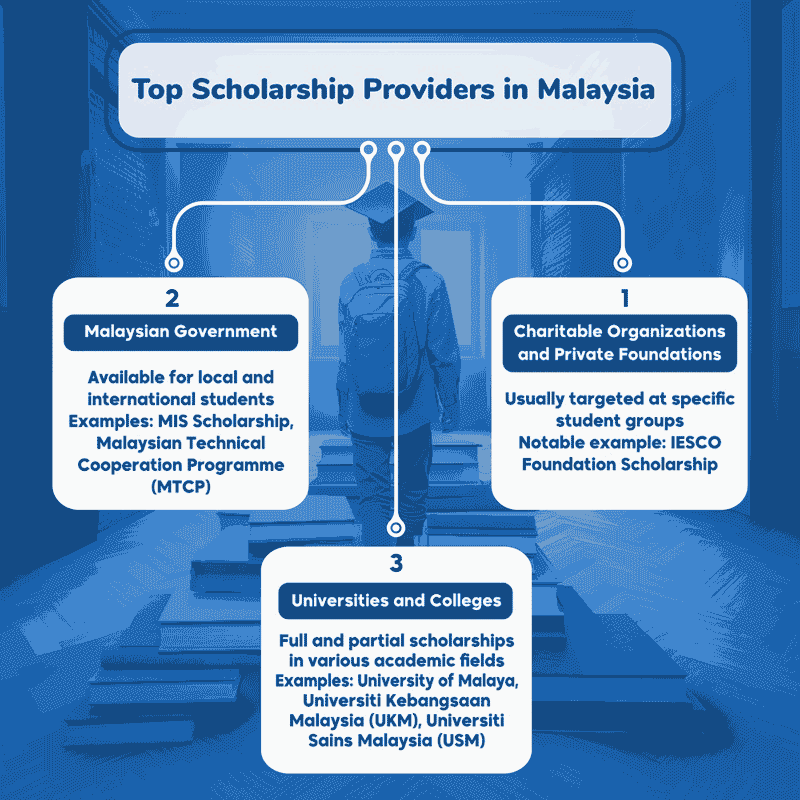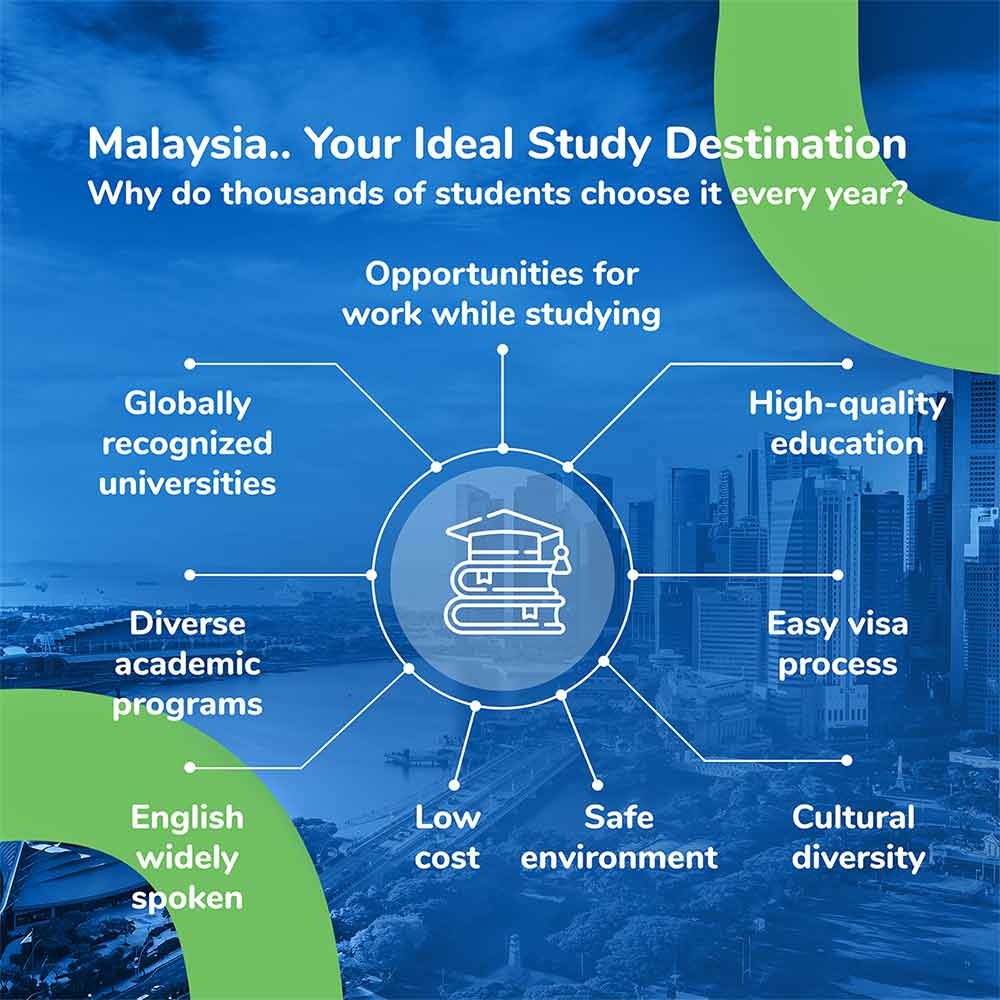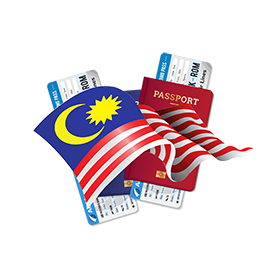Main Scholarships In Malaysia (2025): Types, Unis, and More
Scholarships are invaluable tools that help talented students overcome financial barriers and achieve their academic goals. Recognizing their importance in developing minds and fueling scientific progress, universities across the globe offer a variety of scholarships. Malaysia stands out as a destination with diverse scholarship opportunities. If you dream of pursuing higher education in this vibrant country, this guide will outline essential information about scholarships in Malaysia and pathways to securing them.

Types of Scholarships in Malaysia
Malaysian scholarships range from fully-funded to partial awards, with some specializing in English language proficiency or postgraduate studies. Let’s explore each category:
1. Full Scholarships
These sought-after scholarships cover the majority, if not all, of your educational and living expenses. They are often reserved for students demonstrating exceptional academic excellence and potential.
Examples:
- Nexus University Scholarships: Nexus International School University awards full scholarships within its International Bachelor’s Diploma Program to high-achieving Malaysian and international students. These scholarships recognize strong performance on academic exams, language proficiency tests, and extracurricular involvement.
- Malaysian Government Grant MIS: This comprehensive scholarship from the Malaysian government targets graduate students from outside Malaysia.
2. Partial Scholarships
These grants provide financial assistance for a portion of your overall educational and living expenses. While they don’t cover everything, they significantly ease the financial burden for students.
Examples:
- Public Medicare Group Scholarships (Medical/Pharmacy): This program offers Malaysian citizens pursuing a full-time pharmacy degree a generous support package. It includes up to RM50,000 in funding, expense coverage, and a guaranteed 3-year work placement upon graduation.
- IUBH University of Applied Sciences Grants: Enjoy the flexibility of IUBH with the potential to earn a 75% tuition waiver, making your education even more attainable.
- IIUM scholarships.
Related: University of Malaya Scholarships for International Students 2025
3. English Language Study Grants
To bridge language gaps and ensure academic success, these scholarships target English language proficiency development. They come in various forms:
- Language Study Grants: These might cover tuition for English language programs offered by Malaysian schools or institutes, and can be full or partial.
- Preparatory Period Grants: Some universities provide international students with preparatory programs focusing on English proficiency and academic skill-building. Scholarships might be available to cover these programs.
Examples:
- Malaya University Scholarship.
- International Islamic University Malaysia (IIUM) Scholarship.
- University of Nottingham Malaysia Scholarship.

Malaysia’s Top Scholarship Providers
Malaysia boasts a diverse range of institutions offering scholarship opportunities. Key providers include:
- Malaysian Government: A major supporter of education, the government funds scholarships for both Malaysian and international students. Flagship programs include the MIS international scholarship and the Malaysian Technical Cooperation Programme (MTCP) grant.
- Universities and Higher Institutes: Many Malaysian universities and institutes offer scholarships specifically targeting international students. These vary in scope (full vs. partial) and academic focus across institutions. Examples include the University of Malaya, University of Nilai, and Yayasan University.
- Charities and Private Foundations: Several charities and education NGOs support students based on merit and need. The IESCO Grant and albukhary university scholarship are notable examples.
Application Conditions for Malaysia Scholarships
To maximize your scholarship chances, familiarize yourself with common application requirements found in many Malaysian scholarships:
General Terms of Application:
- Academic Excellence: Demonstrate strong academic achievement, typically reflected by a high cumulative GPA or its equivalent.
- Citizenship: Carefully verify the citizenship eligibility of each scholarship before applying.
- Age Constraints: Be mindful of potential age restrictions associated with specific scholarships.
- Language Proficiency: Prove your English language competency through recognized tests like the IELTS or TOEFL.
Additional Conditions:
- Volunteerism: Emphasize your extracurricular involvement in community service, sports, or other activities.
- Leadership Skills: Showcase your capacity for leadership by highlighting relevant positions you’ve held.
- Financial Need: Some scholarships may prioritize applicants who demonstrate financial need.
Tips You Need Before Applying For Scholarships In Malaysia
Malaysia grants thousands of students. So you need to follow some tips to stand out and increase your chances of winning:
- Study grants information from their official websites: visit the official website of the donor of scholarships in Malaysia or the institution that provides grants for the year for which you wish to apply. Find available scholarships this year and check the application conditions for each.
- Carefully read the terms and conditions of each grant. These conditions may vary from grant to grant, including required documents and qualifications.
- Document preparation: Collect all documents and documents required for submission. This may include passport, academic record, submission letter, and any additional documents such as recommendation letters.
- Application: Follow the application guidance on the donor’s official website. You may need to fill in an online application form or submit documents via mail or email.
- Follow-up application: After submitting your application, make sure to follow up on your application status via the donor’s official website. You may need to provide additional information or interview if it is within the terms of submission.
- Waiting for reply: After submitting your request, it may take some time for you to receive a reply from the donor. Response can be positive or negative.
Who Benefits From Malaysian Education Grants?
Scholarships in Malaysia target a wide range of local and international students including:
- International students: University scholarships in Malaysia attract international students from around the world. These students can be from different countries and seek to study at Malaysian universities.
- Malaysian students: Of course, Malaysian students can benefit from scholarships to fund their university education in Malaysia. These grants contribute to providing educational opportunities for local students.
- Low-income students: Scholarships play an important role in providing educational opportunities for low-income students who may have difficulty affecting university costs.
- Researchers and Emissaries: Some scholarships are offered to researchers and emissaries seeking higher research or higher degrees at universities in Malaysia.
- Students in war-affected areas: There are many scholarships and educational opportunities available for students from affected areas such as Palestine, Syria and Yemen. These grants are offered by various foundations, charities and governments around the world, most notably IESCO and IIUM scholarships for Palestinian students.
What Is IESCO’s Role In Facilitating Your Access To Malaysia Grants?
Through its efforts, IESCO has established a wide network of relationships with Malaysia’s most important universities. Through these relationships, IESCO was able to provide a partial annual grant to the students of war-affected Areas. These students can apply by visiting the scholarship page and filling out the application form. Applicants must meet specific eligibility criteria, which include academic performance, financial needs and field of study.
Answering the Most Important FAQs
Are Malaysia’s grants only for top-performing students?
While some scholarships prioritize students with exceptional academic records, Malaysia offers opportunities for a diverse range of applicants. Many scholarships have varying requirements, making them accessible to students beyond purely the top tier.
What do universities benefit from scholarships?
Universities reap a range of benefits by offering scholarships:
- Enhanced Reputation: Scholarships attract high-achieving students, raising the university’s academic profile.
- Student Diversity: Scholarships allow universities to welcome students from various backgrounds, creating a richer learning environment for everyone.
- Research & Innovation: Talented scholarship students often become valuable contributors to research initiatives.
- Donor Relations: Scholarships foster strong relationships with donors, potentially leading to additional funding and support.
- Strategic Objectives: Scholarships assist universities in achieving goals such as boosting enrollment in specific fields or diversifying the student body.
















